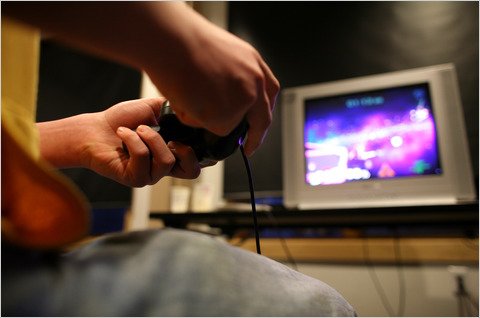Protecting our children from getting lost in technology
Protecting our children from getting lost in technology
By Mark Beddow
The post-millennial generation are behaving very differently to their older forefathers. There is less personal communication between younger people, their peers and adults. It is highly probable that due to factors such as less exposure to the outdoors and less awareness of people around them, mental health problems amongst young people are increasing.
Their gaze cast down, eye contact lost, we see only glimpses of their character, personality and charisma. The larger part of them, their mind, their awareness is invested somewhere other than in the people around them. the term, ‘Persona,’ originally from Latin, referred to our social or theatrical roles, the wearing of a mask within these presentations was a key meaning. The Oxford dictionary definition reads as: “the aspect of someone’s character that is presented to or perceived by others.”
We witness our young creating personas online every day, creating online avatars by which they socialise in a digital world. Look up the word persona via Google and the first link refers to a Japanese computer role playing game franchise. Ready Player One, (RP1) a recent film portrayed a world where the characters were all but cut off from reality and all invested in the hunt for a fortune via their online personas. Not just individuals but also corporations. The film’s overall theme is based on the premise of player personas and investment of our real-world selves within them, this could raise a contemporary dilemma, that could affect our future generations.
We spend so much of our time focusing on our careers, and then emphasise the success of our children, from school grades, to further education, if they are lucky. All of this is in the pursuit of the means to survive or even get rich. Much of the time we do get together with our young ones is being consumed by a virtual presence at an individual and not a communal level. The brave amongst us put boundaries around the time a child is allowed to visit this space, however, most of us find this difficult to implement in practice.
Good mental health is maintained from having access to love, warmth, food and meaning whether derived from the roles we play in family, society or work. Belonging and security are essential states of being if one is to mature into a functional adult. Perhaps states of belonging are derived from a virtual world as in RP1. Perhaps online relationships will foster social skills as effective as those preserved by pre-computer relationships. Perhaps our young may become more effective and more prescient observers of how to manage the problems that lie ahead.
Climate change, desertification, and over-population are just a few major issues, threatening the survival of our planet in the not too distant future. One quirky statistic reveals that in the last ten years, the number of underage pregnancies in the UK has halved. If this is a consequence of young people being addicted to gaming and social media, then maybe the latter concern may be addressed by default. However, this could represent the emergence of another sociological issue. The Royal college of Psychiatry now recognises the overuse of digital interfaces as an addiction. Conclusions from their research have led to the beliefs that similarities with other addictions, not least the impact on familial and work-related relationships.
Artificial intelligence, in the form of marketing algorithms, now target the individual online. Tailoring information, including adverts and much of the content that they see online, to suit the user’s interests. For vulnerable young people, this creates a filter bubble around the content they see, and in an online world where access to information should be liberated, in fact the things that young people see are restricted by these algorithms, should they not make a conscious effort to find unfamiliar content.
The Age of Information is here, it will be interesting to see how our young utilise this resource for better or for worse. The internet gives the opportunity for enlightenment, but those in control, Google, Facebook and the likes, can have a seriously detrimental effect on what, young people in particular, can learn from their peers. Particularly those with different views to them.
If there is an antidote it may exist in the implementation of boundaries around the amount of time spent on such devices. By establishing boundaries, adults can teach younger people invaluable lessons. Firstly, the adult will employ assertion skills to do the job. The child needs to know how to use the word NO in the right context and they can only learn this ability if they have been told NO themselves at a younger age.
Parents may also benefit from implementing boundaries in relation to their own use of digital technology, especially in the presence of their children. Curtailing their use would reinforce the value of their child’s company.
Parents, just like the child can be vulnerable too. In stressful times, the hunt for work, fortune or other modern worries. With unlimited information in our pocket, it’s hard to resist taking a look and delving into the distraction.
If anyone reading this article would like support for themselves or family regarding their emotional health please contact:
Mark Beddow Pennine Care at Home Ltd.
Tel: 07988785221











